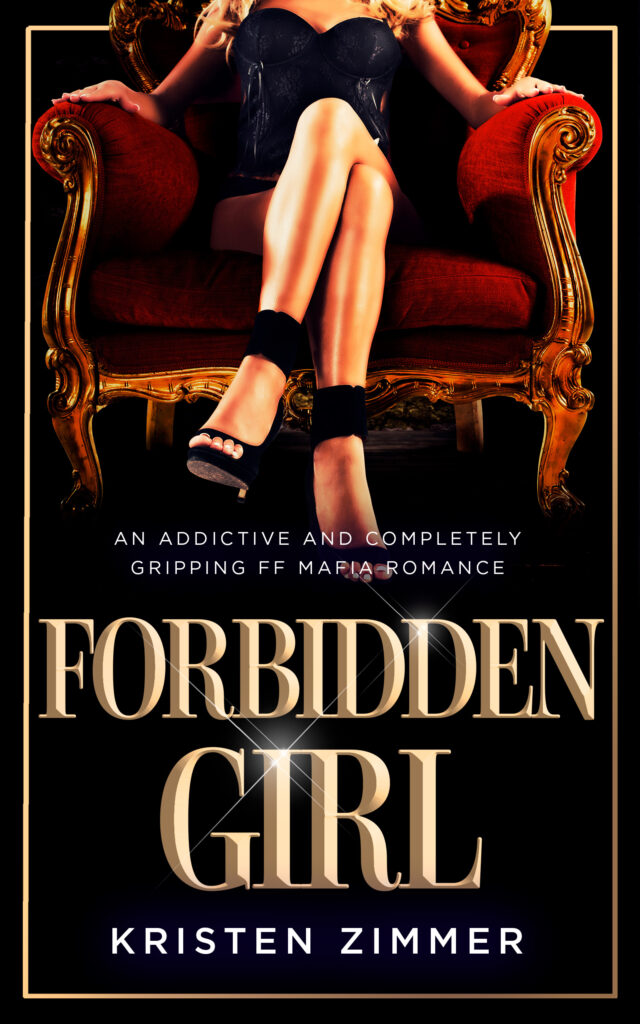One of the earliest ways to find sapphic visibility was through pulp fiction romance novels. During the time of the Lavender Scare, these stories, despite their frequent lack of happy endings, were a source of solace for queer women of all ages seeking self-understanding. Today, sapphic literature is a burgeoning market, making up a significant percentage of new LGBTQ+ publications. With increased visibility and readership, the stories themselves naturally become more varied and reflective of broader ideas of queerness.
For over a decade, novelist Kristen Zimmer has written sapphic romance. Having published her first contemporary novel, The Gravity Between Us, in 2013, she has observed the evolution of the sapphic romance genre over the past decade.

“In 2013, the national zeitgeist was changing. We were having conversations about marriage equality. It was the first time in history that it was okay for queer people to openly love who they loved,” Zimmer reflects. “I set out to write a book about a young lesbian who was choosing to live her life openly and honestly as a young gay woman. Back in 2013, that was a big deal. Now, it isn’t. And I love that. We are flooded with so many representations of what it is like to be a queer woman.”
She is inspired by speculative fiction, sci-fi (think This is How You Lose the Time War), and dark themes—the latter of which especially plays into her latest novel, Forbidden Girl.

Forbidden Girl is the enemies-to-lovers story of Jules and Rowan, two daughters of rival mafia families in modern-day Boston. Their connection, initially a tease, slips into something irreversibly deeper, and the two are locked in a passionate desire for one another.
“The premise is influenced by Romeo and Juliet. I had this idea . . . what if the Capulets and the Montagues were crime families? And essentially, they kind of were,” Zimmer, who is based in Massachusetts, says with a smile. “I’ve also always had this fascination with the mafia, being Italian.”
“Rowan was groomed to take over the family business. She was taught to be brutal and ruthless in her violence, but that isn’t necessarily who she is at her core.”
“I’m not a violent person, but I do a violent job.” -Rowan, Forbidden Girl
“It sums up women in general, when they’ve been conditioned a certain way and need to do violent things to survive,” says Zimmer. And while romance can certainly be dark and messy, Jules and Rowan’s story, like all the other sapphic stories that came before theirs, persists. “It’s a love story at its core.”
Like the pulp fiction of the 1950s, sapphic romance continues to thrive among communities of queer women, now extending to Bookstagram, BookTok, and other digital platforms. “Contemporary romance is the bread and butter of sapphic literature,” Zimmer affirms. “I would love for there to be more of a crossover of genres in the future. I hope the readers of my past two contemporary romance books will give dark romance a try with Forbidden Girl.”
Zimmer’s hopes seem to be manifesting. The trend of unhinged, queer female narrators (think Big Swiss and A Good Happy Girl) is breaking the mold of contemporary romance and reshaping literary fiction. Along with bringing joy and community, these stories bring visibility to the sapphic community.
This visibility is also personal. “Britton is essentially a young me on a page,” Zimmer reflects, speaking about the protagonist of her second novel, When Sparks Fly. “That was me at my most vulnerable, and so that character will always be special to me.”

The genuine intimacy put into these stories is well-received by readers. As of May 2023, LGBTQ+ romance titles increased 40% in the publishing market over the previous year.
“I don’t feel like I have to write for representation anymore,” Zimmer says. “Now, I’m writing for fun.”
Forbidden Girl debuted on July 2nd from Bookouture. In the meantime, Zimmer continues to explore a breadth of genres, with a forthcoming poetry collection in the works.


